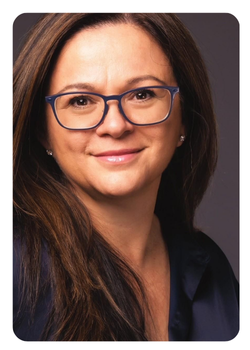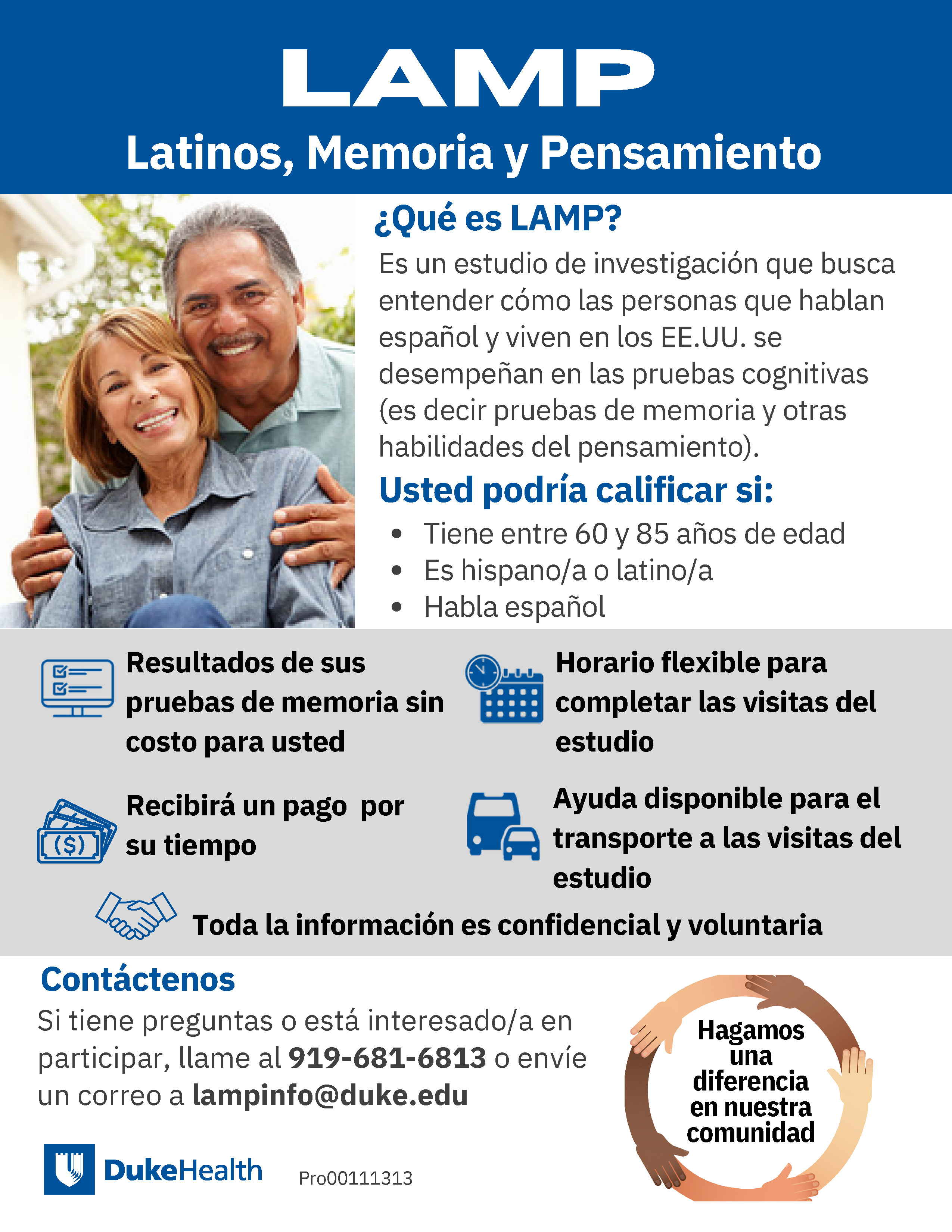Overview
The DAR team is committed to advancing science that addresses neurocognitive disparities and promotes neurocognitive health equity in aging. We aim to develop accessible, sustainable, and ethical research that includes and benefits all by focusing our efforts on groups that have been underrepresented in science. We seek to promote an environment that fosters a sense of belonging in science among trainees, staff, and faculty from all backgrounds that allows all to thrive.
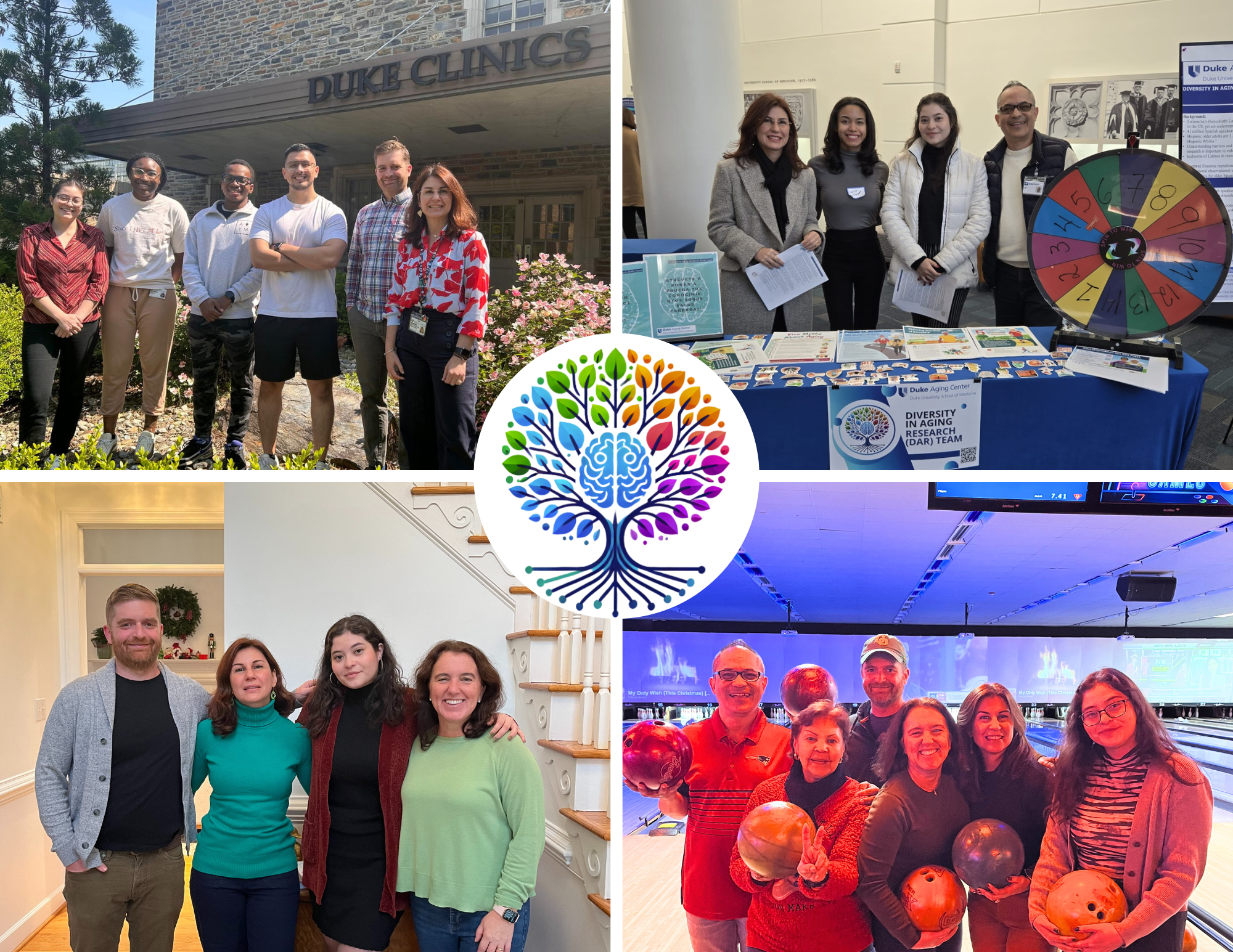
Current Studies
You can make a difference in the community today! Join one of our studies.
Latinos, Memory and Thinking (LAMP): This study seeks to understand how Spanish-speaking people living in the US perform cognitive tests (meaning tests of memory and other thinking skills).

Neurocognitive Impairment and Cardiovascular Risk in Parkinson's Disease: This study seeks to understand factors associated with problems with cognition (i.e., memory, and other thinking skills) in persons with Parkinson’s Disease of diverse backgrounds. Such understanding will help guide the development of interventions to reduce problems with cognition in persons with Parkinson’s Disease.
For more information: https://duke.qualtrics.com/jfe/form/SV_aVQBQ2ESluUKib4

Latest Research & Grants
Publications
2024
Community-Based Participatory Research Empowers People Living with Dementia to be Research Collaborators.
Authors: Griffith, E. E., Lepore, M., & Monin, J. K.
Publisher: The Gerontologist
This article shares community-engaged recommendations for making research with people living with Alzheimer’s and related dementias more inclusive, collaborative, and impactful.
2023
Demographically-adjusted normative data among Latinos for the version 3 of the Alzheimer's Disease Centers' Neuropsychological Test Battery in the Uniform Data Set.
Authors: Marquine, M. J., Parks, A., Perales-Puchalt, J., González, D. A., Rosado-Bruno, M., North, R., Pieper, C., Werry, A. E., Kiselica, A., Chapman, S., Dodge, H., Gauthreaux, K., Kukull, W. A., & Rascovsky, K.
Publisher: Alzheimer’s and Dementia, The journal of the Alzheimer’s Association.
This article provides information about improved standardized norms for memory and thinking tests, specifically for Latino adults. These updates help ensure that cognitive test results are more accurate and fairer by accounting for language, education, and cultural background—making assessments more meaningful for Latino communities.
Cognitive Impairment After Ischemic and Hemorrhagic Stroke: A Scientific Statement From the American Heart Association/American Stroke Association.
Authors: El Husseini, N., Katzan, I. L., Rost, N. S., Blake, M. L., Byun, E., Pendlebury, S. T., Aparicio, H. J., et al
Publisher: Stroke
This article summarizes current research on cognitive outcomes following both ischemic and hemorrhagic strokes. It emphasizes the need for systematic cognitive screening as part of post-stroke care and identifies risk factors that disproportionately affect certain populations. The article provides clinicians and policymakers with evidence-based recommendations for early detection, intervention, and support services aimed at improving quality of life and reducing long-term cognitive disability after stroke.
Emotional health and its association with neurocognition in Hispanic and non-Hispanic White people with HIV.
Authors: Guareña, L. A., Kamalyan, L., Watson, C. W. M., Karcher, K., Umlauf, A., Morgan, E., Moore, D., et al.
Publisher: Journal of the International Neuropsychological Society
This article investigates how emotional wellbeing– such as levels of depression, anxiety, and stress– relates to cognitive performance in people living with HIV. It focuses particularly on Hispanic populations, who are often underrepresented in neuroHIV research. The findings suggest that better emotional health is linked to stronger cognitive functioning, pointing to the importance of culturally tailored mental health interventions in improving neurocognitive outcomes among diverse groups.
2022
Food, Medicine, or Heat? How Firewood Banks Leverage Local Natural Resources to Support Fuel-Poor Households.
Authors: Griffith, E.E., Dampier, J., Hart, C., Harper, R
Publisher: Journal of Rural and Community Development
→ This article shares key details on firewood banks including where are they located, who access them and how they operate. This study identifies how wood banks may help alleviate fuel poverty.
2021
Introduction to the Neuropsychological Norms for the U.S.-Mexico Border Region in Spanish (NP-NUMBRS) Project
Authors: Marquine, M. J., Rivera Mindt, M., Umaluf, A., Suarez, P., Kamalyan, L., Morlett Paredes, A., Yassai Gonzalez, D., Scott, T., Heaton, A., Diaz-Santos, M., Gooding, A., Artiola i Fortuny, L., Heaton, R. K., & Cherner, M.
Publisher: The Clinical Neuropsychologist (Norms for Spanish Speakers Special Issue)
→ This publication introduces the NP-NUMBRS project, a major effort to create neuropsychological test norms specifically for Spanish-speaking individuals living along the U.S.-Mexico border. The project addresses a long-standing gap in cognitive assessment tools that reflect the linguistic, educational, and cultural experiences of Spanish speakers in the United States. These norms improve clinical interpretation and help prevent misdiagnosis among Latino patients.
2020
Cultural and linguistic proficiency in mental health care: A crucial aspect of professional competence
Authors: Marquine, M. J., & Jimenez, D. E.
Publisher: International Psychogeriatrics
→ This commentary argues for the central role of cultural and linguistic competence in mental health services, especially for older adults from diverse backgrounds. The authors highlight how lack of training and awareness among providers can contribute to misdiagnoses and poor outcomes, while culturally responsive care can improve trust, communication, and overall treatment effectiveness for aging populations.
Grants
Research and Mentoring on Neurocognitive Disparities in Aging
Funding Source: National Institutes of Health
Award Period: 2023 – 2026
This NIH-funded initiative supports mentoring early-stage investigators while advancing research on cognitive aging disparities among underserved populations. The grant helps develop a pipeline of culturally responsive researchers who are committed to health equity and improving cognitive health outcomes in older adults across diverse racial, ethnic, and socioeconomic groups.
Disparities in Neurocognitive Impairment among Hispanics/Latinos in the US with Parkinson’s Disease: The Role of Cardiovascular Risk (MJFF-020964)
Funding Source: Michael J. Fox Foundation
Award Period: Jan 2022 – Jan 2025
This project examines how cardiovascular risk factors—such as hypertension, diabetes, and obesity—contribute to cognitive decline in Hispanic/Latino individuals with Parkinson’s disease. By focusing on a modifiable risk factor, the study aims to inform future interventions that could improve cognitive outcomes and quality of life for one of the most vulnerable and underserved groups affected by PD.
In the News
Apple Podcast: Navigating Neuropsychology “Neuropsychological Norms for Spanish Speaking People in the U.S.
A podcast episode highlighting efforts to create inclusive, culturally-informed cognitive testing norms for Spanish speakers in the U.S., featuring a discussion on health equity and neuropsychological research practices.
The San Diego Union Tribune (Spanish)“ La demencia afecta a la comunidad latina y hay que poner atención”
An article calling attention to the disproportionate burden of dementia in Latino communities and the need for early detection, community outreach, and culturally relevant resources.
The San Diego Union Tribune (Spanish) “Es posible mantener la mente saludable a medida que vamos envejeciendo?”
This piece explores tips for maintaining brain health as we age, with expert input on nutrition, exercise, social connection, and the importance of participating in research.
The San Diego Union Tribune in (Spanish) “El Alzheimer es una enfermedad que afecta el cerebro”
A public-facing explanation of how Alzheimer’s disease impacts the brain, including early symptoms, progression, and the importance of seeking medical guidance.
Neurology Live: "Positive Life Change During Pandemic Linked to Fewer Cognitive Symptoms Among Latin American Elderly”
Coverage of research showing that positive lifestyle changes during the COVID-19 pandemic—such as increased family connection or healthy habits—were associated with reduced cognitive symptoms in older Latin Americans.
The San Diego Union Tribute (Spanish) “¿Por qué es importante que los latinos participemos en investigaciones sobre envejecimiento saludable?”
A call-to-action encouraging Latino community members to participate in aging research studies, emphasizing representation, equity, and improved care outcomes.
Duke University School of Medicine press “Leveling the Playing Field: Maria Marquine's Mission to Advance Latino Health Equity”
A spotlight on Dr. Marquine’s work building equity in cognitive aging research through mentorship, community engagement, and advocacy for structural change.
The Florida Times-Union “Conversations with 'la familia' about aging and Alzheimer’s disease” – Lizbeth Vera Murillo
A feature on the importance of intergenerational dialogue in Latino families about aging, memory loss, and how to support loved ones with Alzheimer’s disease.
Aqui en tu comunidad, Tu 18JAX “Part 1” and “Part 2”
A two-part Spanish-language television segment highlighting community-based research on aging and dementia, with interviews about risk factors, prevention, and the value of Latino participation in studies.
Meet the Team
María Marquine, PhD
Dr. Marquine is an Associate Professor in the Department of Medicine (Geriatrics Division) and the Department of Psychiatry and Behavioral Sciences at Duke University, and is Associate Scientific Director for Research Career Development in the Duke Aging Center. Originally from Uruguay, she is a bilingual (Spanish/English) clinical scientist and neuropsychologist. Her research focuses on addressing neurocognitive disparities in aging and promoting health equity.
Marianne Chanti-Ketterl PhD
Marianne Chanti-Ketterl is a bilingual gerontologist (Spanish/English) with expertise in the epidemiology of aging. Her research focuses on how environmental exposures—the exposome—affect cognitive function and the development of Alzheimer’s disease, related dementias, and other neurodegenerative conditions such as Parkinson’s disease. She explores a range of factors, including pesticide and toxic chemical exposure, social determinants of health, traumatic brain injury, metabolic biomarkers, cognitive resilience, and interventions such as cognitive training. She is also interested in research involving artificial intelligence and machine learning methodologies. She welcomes opportunities for academic collaboration.

Lizbeth Vera Murillo, MS
Hola! I am a bilingual (English/Spanish) clinical research coordinator, originally from Ecuador. I obtained my Bachelor’s in Psychology at Youngstown State University and my Master’s in Psychological Science at the University of North Florida. My research focuses on neurocognitive health equity for Latinos/Hispanos and Black/African Americans, mainly through promoting the recruitment and retention of these groups in research studies. In my current role at Duke, I am focused on helping the lab address neuropsychological test standards for Spanish Speakers with the LAMP (Latinos, Memoria y Pensamiento) study and prevent cognitive problems with our Parkinson’s study.
Eric Griffith, PhD
Dr. Eric Griffith received his Ph.D. in anthropology from the University of Massachusetts Amherst and then worked as a Postdoctoral Fellow at Duke's Samuel DuBois Cook Center on Social Equity. He completed his dissertation fieldwork in central Mexico, focusing on the experiences of familial caregivers for people living with Alzheimer’s disease. Eric’s research interests include biocultural anthropology, cognitive aging, health disparities, and social determinants of health. He is currently an Assistant Professor of Cultural (Medical) Anthropology at Utah State University, where he collaborates with our lab.
Leo Sanabria
Leo Sanabria is a senior at Duke University, majoring in Biology with a strong interest in health equity and neurocognition. He is interested in understanding how the lived experiences of Latino communities shape cognitive health and healthcare outcomes, particularly in comparison to other populations. He is especially curious about how structural and cultural factors—such as language, socioeconomic status, and access to care—contribute to disparities in cognitive aging and disease presentation. More broadly, Leo is committed to research and initiatives that center racial and ethnic minorities in healthcare, to advance more equitable, accessible, and culturally responsive care.
Fabiana Henríquez
¡Saludos! My name is Fabiana Henríquez, and I am a bilingual (Spanish/English) clinical research assistant born and raised in Puerto Rico. I am currently a sophomore at Duke University pursuing a degree in Neuroscience on the pre-med track. I have been working as a clinical research assistant for a semester, where I have been taught to administer patient visits for Parkinson’s disease and Hispanic neurocognitive norm studies. In this role, I conduct sociodemographic and neuropsychological assessments with Hispanic patients in North Carolina, among other tasks in the lab. In the near future, I aspire to become a neurologist specializing in neurodegenerative diseases and to use my work to support the Hispanic community. Outside of academics and research, I love photography and video editing!

Amber White
I am a senior at Duke University majoring in Biology, and I am passionate about bridging healthcare and Native American communities through research. As a member of the Navajo Nation, I care about advancing health equity and ensuring that Indigenous voices as well as other underrepresented groups are represented in science and medicine. I am especially interested in how research can be used to understand and address health disparities in aging, cognitive health, and healthcare access. My goal is to pursue a career in medicine and research that centers cultural relevance, community engagement, and promote equity for Native communities and other marginalized groups.
Contact Us
Email Maria Marquine:maria.marquine@duke.edu
Email Lizbeth Vera Murillo: lizbeth.veramurillo@duke.edu o 919-681-3957
En Español
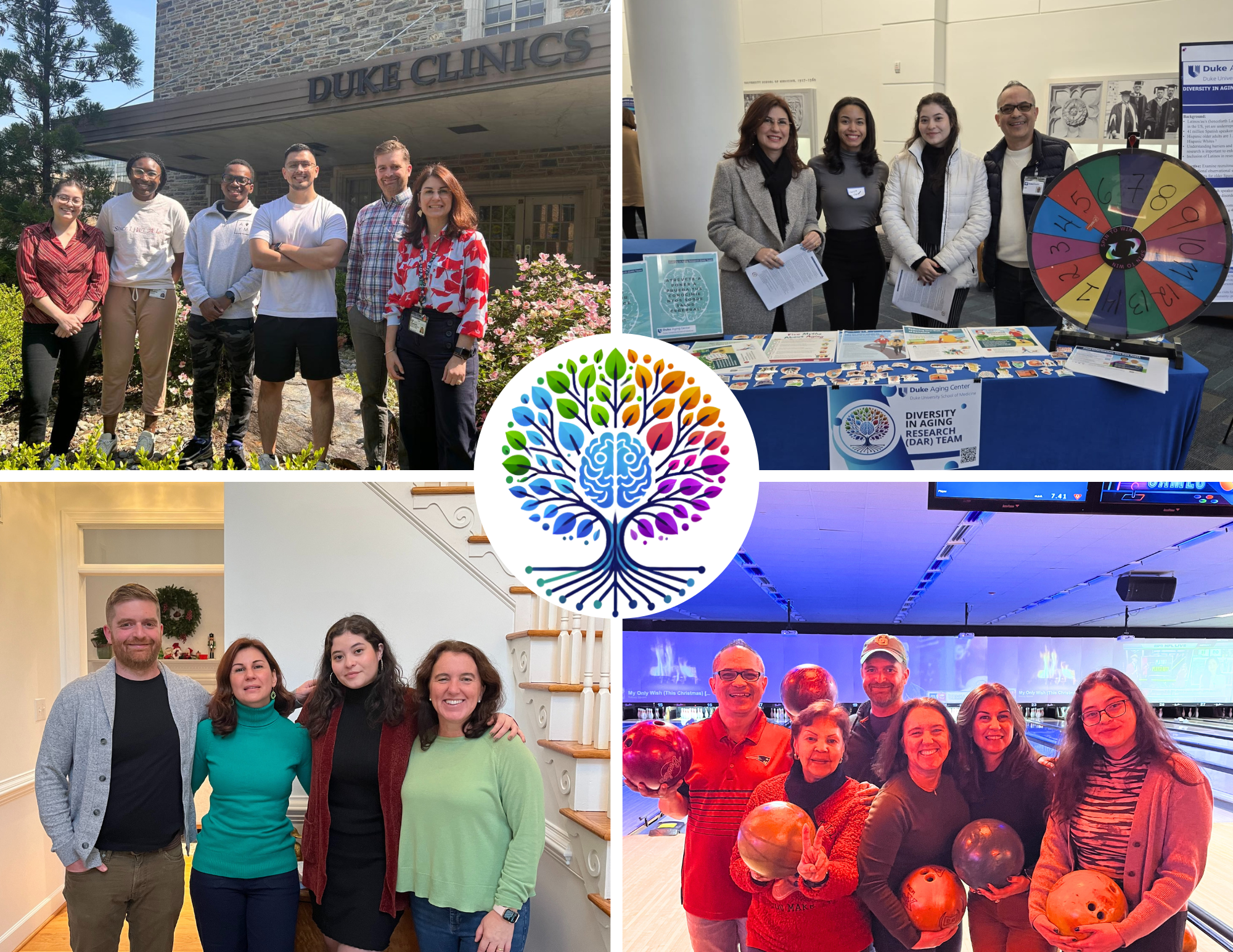
Equipo DAR (Diversidad en la investigación científica del Envejecimiento)
El equipo de DAR está comprometido con el avance de la ciencia que aborda las disparidades neurocognitivas y promueve la equidad en la salud neurocognitiva en el envejecimiento. Nuestro objetivo es desarrollar una investigación accesible, sostenible y ética que incluya y beneficie a todos centrando nuestros esfuerzos en grupos que han estado subrepresentados en la ciencia. Buscamos promover un entorno que fomente un sentido de pertenencia a la ciencia entre los alumnos, el personal y el profesorado de todos los orígenes y permita que todos prosperen.
Estudios
Es un estudio de investigación que busca entender cómo las personas que hablan español y viven en los EE.UU. se desempeñan en las pruebas cognitivas (es decir pruebas de memoria y otras habilidades del pensamiento)
- Tiene entre 60 y 85 años de edad
- Es hispano/a o latino/a
- Habla español
Si tiene preguntas o está interesado/a en participar, por favor llame al
919-681-3957 o envíe un correo electrónico a lampinfo@duke.edu
¿Tienes Parkinson y 40+? Ayúdanos a entender como prevenir problemas de memoria y pensamiento. Pago, transporte y horarios flexibles. El propósito de este estudio es comprender los factores asociados con los problemas de cognición (es decir, memoria y otras habilidades de pensamiento) en personas con enfermedad de Parkinson de diversos orígenes. Tal comprensión ayudará a orientar el desarrollo de intervenciones para reducir los problemas de cognición en personas con enfermedad de Parkinson.
Para más información: https://duke.qualtrics.com/jfe/form/SV_aVQBQ2ESluUKib4
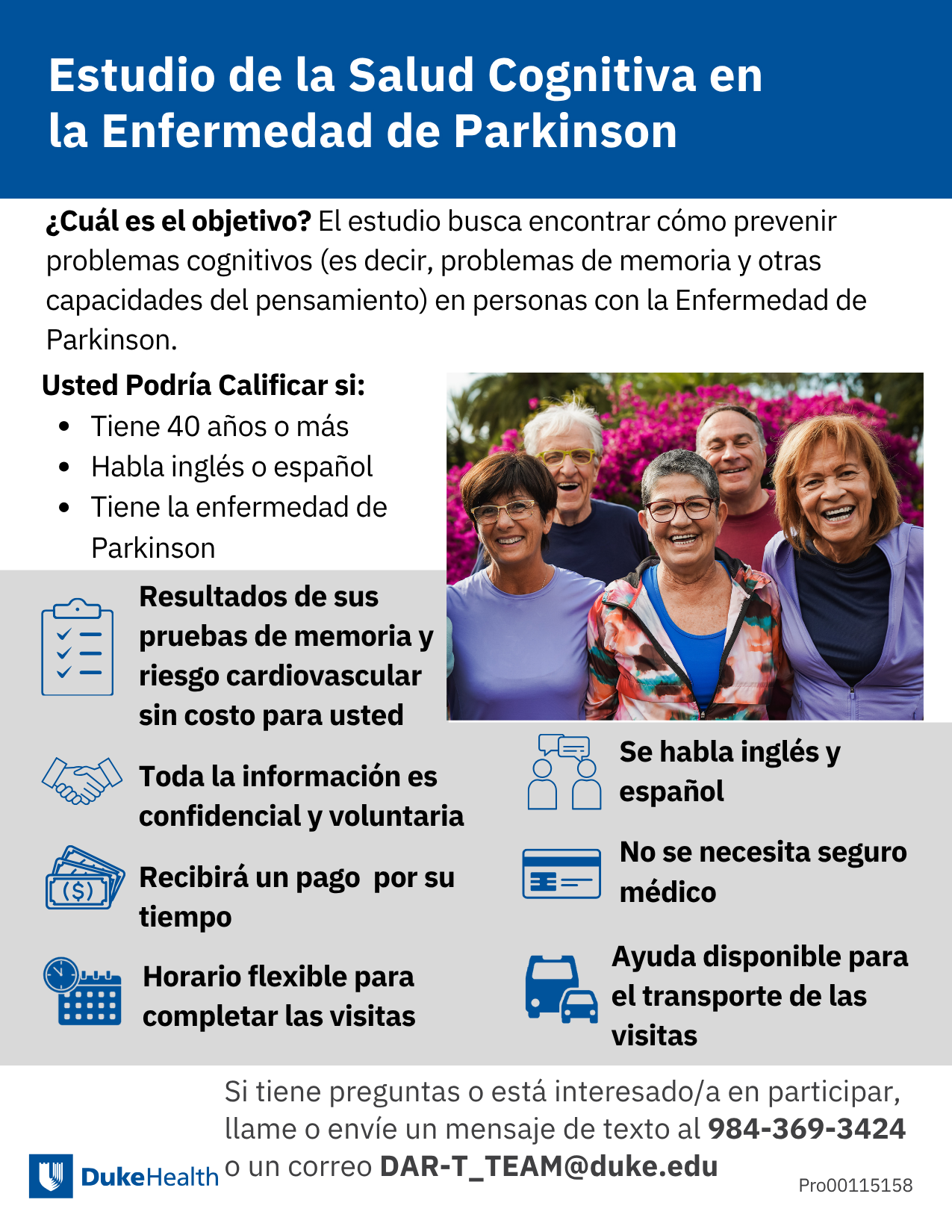
En las Noticias
The San Diego Union Tribute en Español “ La demencia afecta a la comunidad latina y hay que poner atención” by Dr. Marquine
The San Diego Union Tribute en Español “¿Por qué es importante que los latinos participemos en investigaciones sobre envejecimiento saludable?”
The San Diego Union Tribute en Español “Es posible mantener la mente saludable a medida que vamos envejeciendo?”
The San Diego Union Tribute en Español “El Alzheimer es una enfermedad que afecta el cerebro”
Aqui en tu comunidad, Tu 18JAX “Part 1” and “Part 2”
Equipo
María Marquine, PhD
La Dr. Marquine es profesora en el Departamento de Medicina (División de Geriatría) y el Departamento de Psiquiatría y Ciencias del Comportamiento de la Universidad de Duke, y es director científico asociado para el desarrollo de carreras de investigación en el Duke Aging Center. Originaria de Uruguay, es científica clínica y neuropsicóloga bilingüe (español/inglés). Su investigación se centra en abordar las disparidades neurocognitivas en el envejecimiento.
 Lizbeth Vera Murillo, MS
Lizbeth Vera Murillo, MS
¡Hola! Soy coordinadora de investigación clínica bilingüe (inglés/español), originaria de Ecuador. Obtuve mi Licenciatura de Psicología en la Universidad Estatal de Youngstown y mi Maestría de Ciencias Psicológicas en la Universidad del Norte de Florida. Mi investigación se enfoca en la equidad de salud neurocognitiva mediante el reclutamiento y la retención en estudios de investigación. En mi trabajo actual en Duke, ayudo al laboratorio con el estudio LAMP (Latinos, Memoria y Pensamiento) para investigar los estándares de pruebas neuropsicológicas para hispanohablantes. Cuando no estoy trabajando, me gusta cocinar, hornear, pintar y leer.
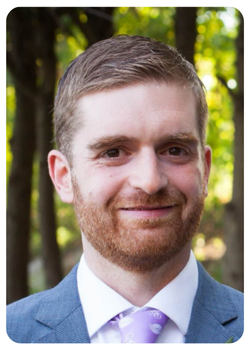 Eric Griffith, PhD
Eric Griffith, PhD
El Dr. Eric Griffith recibió su doctorado de antropología de la Universidad de Massachusetts Amherst y trabajó como becario postdoctoral en el Centro Samuel DuBois Cook sobre Equidad Social de Duke. Completó su trabajo de tesis en el centro de México, enfocándose en las experiencias de los cuidadores de familiares que viven con la enfermedad de Alzheimer. Los temas de investigación de Eric incluyen la antropología biocultural, el envejecimiento cognitivo, las disparidades en la salud y los determinantes sociales de la salud. Actualmente es Investigador Postdoctoral T32 en el Duke Aging Center, trabajando bajo la dirección de la Dra. María Marquine.
Póngase en Contacto con Nuestro Equipo
Para ponerse en contacto con nosotros por favor llame al 919-681-6813 o mande un correo electrónico a lampinfo@duke.edu

